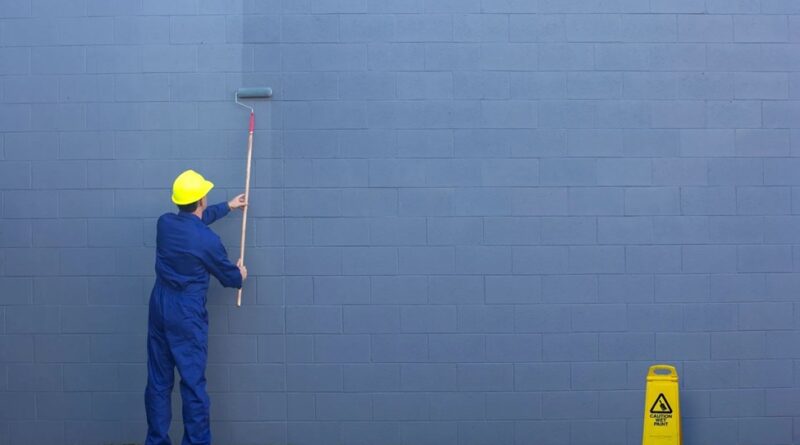What to Expect from Professional Commercial Painters
Hiring professional commercial painters is a smart investment when you want long-lasting results, minimal disruption, and a polished finish. But if it’s your first time working with a commercial painting crew, you might wonder what the process involves and how it all works.
From the first consultation to the final coat of paint, there’s a clear system that professional painters follow. They’re trained to handle large-scale jobs, different types of surfaces, and the unique needs of businesses.
If you’re considering working with commercial painting contractors in Bournemouth, it’s helpful to know what they bring to the table so you can prepare your property and set realistic expectations.
A Detailed Initial Consultation
The process usually starts with a site visit. Professional painters will inspect the property, discuss your needs, and provide expert recommendations. This is your chance to ask questions, explain your goals, and choose colours or finishes.
They’ll take measurements, assess the surface condition, and identify any areas that need repairs or special preparation. You’ll also receive a clear estimate with a breakdown of labour, materials, and project timelines.
A good contractor will listen closely, offer helpful suggestions, and make sure everything is planned before work begins.
Thorough Surface Preparation
Proper prep work is the foundation of a quality paint job. This stage can take up a good portion of the total project time, but it’s essential for achieving a smooth and lasting finish.
Commercial painters clean the surfaces, remove loose or flaking paint, sand where needed, and apply primers suited to the surface type. They also repair minor damage, fill cracks, and protect adjacent areas with tape and covers.
Skipping prep may save time upfront but leads to peeling, chipping, and uneven finishes. Professionals never cut corners during this step.
Expert Knowledge of Paints and Materials
Commercial painting isn’t a one-size-fits-all service. Different surfaces and industries require different products. For example, retail interiors need scuff-resistant finishes, while healthcare environments require low-VOC paints for air quality.
Experienced painters know which products perform best on metal, concrete, drywall, or wood. They also consider factors like foot traffic, sunlight, and moisture exposure when choosing paints and coatings.
This expertise helps ensure you get the most durable, cost-effective solution for your space.
Efficient Project Management
Time is money in business, so professional commercial painters focus on efficiency. They work with a clear timeline and schedule, managing the project to avoid delays and disruptions.
You’ll know exactly when work begins, how long it will take, and what areas are being worked on each day. A dedicated supervisor often oversees the crew, coordinates with your staff, and ensures safety standards are followed.
If your business needs to stay open during the project, painters can work in phases or outside regular hours to reduce downtime.
Clean and Organised Work Areas
Professional painters treat your property with respect. They keep the site clean, organised, and safe from start to finish. This includes using drop cloths, sealing off work zones, and removing tools or debris at the end of each shift.
A tidy work area reduces hazards, keeps your staff and customers safe, and leaves a better impression overall.
By the time the job is complete, everything is back in place, and all signs of construction are gone except for the new, refreshed paintwork.
High-Quality Application Techniques
Whether spraying, rolling, or brushing, commercial painters use proper techniques to ensure even coverage and a smooth finish. Their goal is to create sharp lines, uniform colour, and consistent texture across large areas.
They also apply the right number of coats, allowing drying time between each one. This helps prevent bubbling, streaks, or patchiness that can occur with rushed or uneven application.
The end result looks professional, polished, and brand-appropriate for your business.
Final Inspection and Client Walkthrough
Once painting is complete, the team does a final inspection to check for any missed spots, inconsistencies, or touch-up needs. Then they invite you to do a walkthrough.
This is your chance to review the work, ask for adjustments, and confirm that everything meets your expectations. A reputable contractor won’t leave the job until you’re completely satisfied.
They’ll also provide guidance on how to care for your new paint job and how long it should last under typical conditions.
Reliable Follow-Up and Warranty
Many commercial painters stand behind their work with a service guarantee or warranty. If issues arise shortly after the job, they’ll return to fix them at no extra cost.
A follow-up visit or phone call is common to make sure you’re happy and the paint is holding up well. This kind of ongoing support is a key part of working with professionals and adds peace of mind to your investment.
FAQs
1. How long does commercial painting usually take?
The timeline depends on the size of your property and the scope of work. Most projects range from a few days to a couple of weeks. Your contractor will provide a detailed schedule during the consultation.
2. Do commercial painters work outside business hours?
Yes, many professional painters offer flexible hours, including evenings, weekends, and holidays, to minimise disruption to your operations.
3. What surfaces can commercial painters work on?
Commercial painters handle a wide range of surfaces including drywall, metal, wood, concrete, and more. They use specific techniques and products suited to each material.
4. How do I choose the right commercial painting contractor?
Look for licensed professionals with experience in commercial work, positive reviews, transparent pricing, and a clear process. Local contractors familiar with your area, like commercial painting contractors in Bournemouth, are a great place to start.

